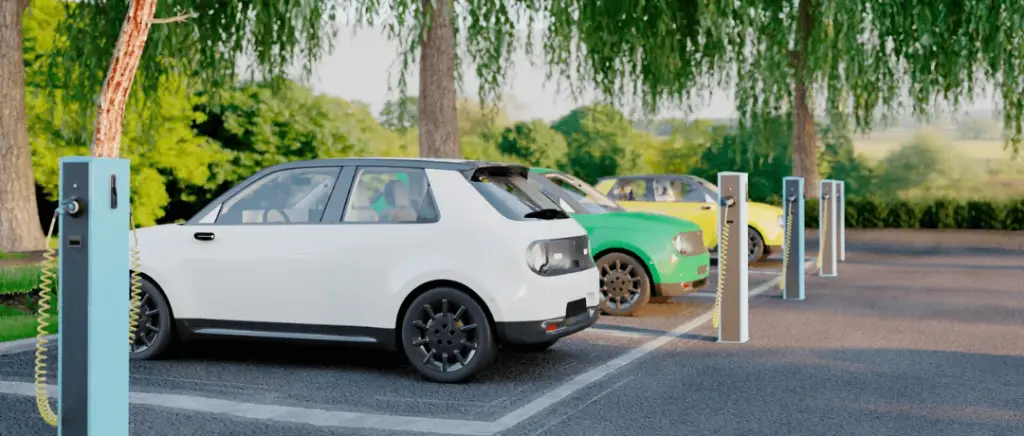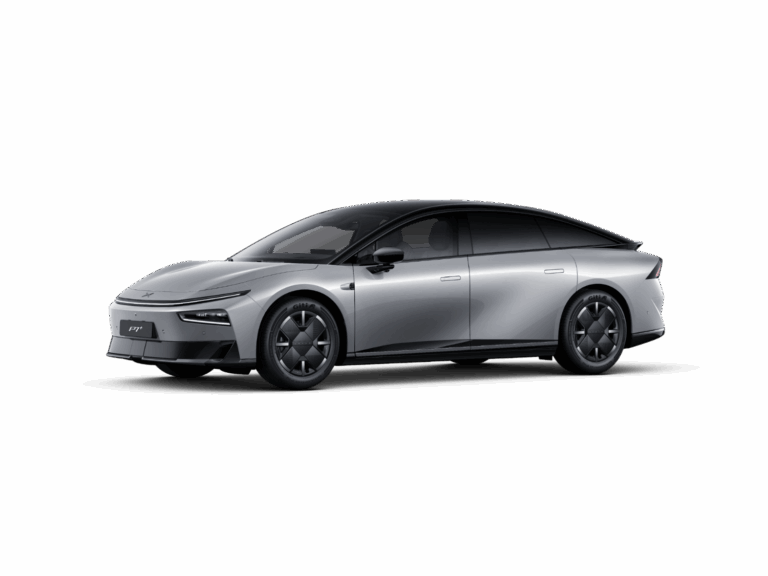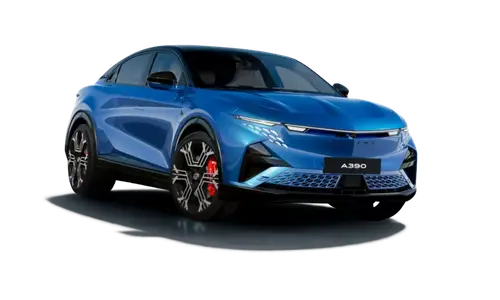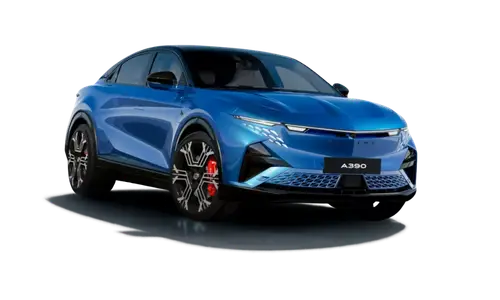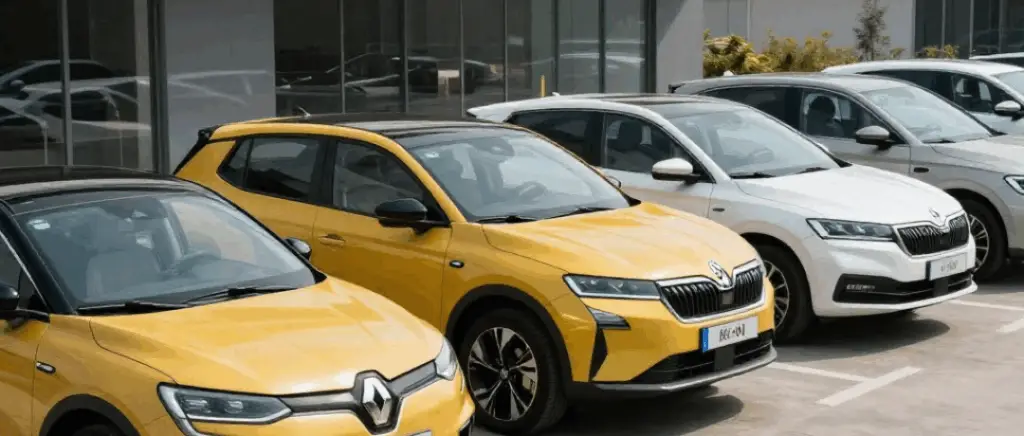Monday to Friday
9am - 12.30pm - 2pm - 7pm
How do I choose the right type of recharging point?
It's important to choose the right type of charging point to meet the needs of the building housing the charging infrastructure. Charging stations differ mainly in terms of power, charging speed and additional features such as intelligent management.
What are the different types of charging point for electric cars?
Slow (or normal) recharging station
- Power : between 3.7 kW and 7.4 kW.
- Average recharge time : between 6 and 12 hours for a full charge.
- Main use : ideal for residential or company car parks.
Terminals Wallbox Pulsar Plus are ideal for domestic installations and small businesses.
Semi-rapid recharging point
- Power : between 11 kW and 22 kW.
- Average recharge time : A full charge takes around 3 to 4 hours.
- Main use : Suitable for shopping centres, offices and public car parks.
EV Box Business Line kiosks are often used in commercial environments for their balance between cost and performance.
Fast charging point
- Power : 50 kW and more.
- Average recharge time : between 30 minutes and 1 hour for a full charge.
- Main use : Mainly used in fast-charging stations, motorway service areas and major transport hubs where vehicle turnover is high.
Terminals Tesla Supercharger are well known for their ability to rapidly recharge vehicles TeslaThis considerably reduces waiting times for users.
Smart charging points
Smart charging stations add a layer of remote management and control, optimising energy distribution and reducing operational costs. They can be programmed to charge vehicles at off-peak times or at the lowest electricity tariffs. Their main features are :
- remote management,
- recharge programming,
- integration with renewable energy systems.
Enel X JuiceBox smart charging stations are widely used for their intuitive interface and ability to integrate with smart energy solutions.
What are the criteria for choosing the right recharging point?
It is essential to choose a terminal that is compatible with the majority of electric vehicles used by your customers or employees. Most modern charging points offer several types of connector, such as the Type 2 connector in Europe, which is the most common for electric vehicles. To maximise its usefulness, make sure that the charging point you select can meet the charging needs of different vehicle models.
What's more, cost is a determining factor in the choice of charging point. Costs include not only the purchase of the chargepoint, but also installation and long-term maintenance. For example, fast-charging stations require more robust electrical installations, which can increase installation costs. However, they offer faster recharge times, which can be a considerable advantage in environments with high vehicle turnover.
Finally, as we will discuss later in this article, programmes such as the ADVENIR in France do exist. They offer subsidies that can cover up to 60 % installation costs for charging points. Taking advantage of these grants makes the initial investment more affordable and enables you to choose better quality or more efficient charging points.
Also read → Top 10 of the best charging points on the market
Installation of charging points and pre-equipment
What are the stages involved in preparing the infrastructure?
Preparing the infrastructure ensures that the installation complies with safety and efficiency standards, while optimising costs and implementation times.
Studying energy requirements
Before any installation, it is essential to carry out an in-depth study of the site's energy requirements. This study must assess the energy demand in relation to the number of charging points planned and their power. For a commercial building wishing to install 50 kW fast-charging stations, sufficient capacity in terms of electrical power must be available. A 50 kW charging point requires an electrical line capable of supplying this power in a stable manner.
Assessing electrical capacity
The capacity of the existing electrical network must be checked to ensure that it can support the addition of new terminals without compromising the stability of the power supply. In a condominium or commercial building, it may be necessary to reinforce or increase the capacity of the electrical panel to meet increased electricity requirements.
Check the conduits and wiring
Installing the right conduits and cables is essential to ensure that charging stations are installed safely and over the long term. These infrastructures must be designed to support the necessary electrical loads and comply with current standards. French legislation requires new buildings to have suitable infrastructure to enable the future installation of charging points. For example, the law on energy transition for green growth requires new buildings to be pre-equipped to facilitate the installation of charging points.
Installing intelligent management systems
The integration of intelligent management systems makes it possible to control energy distribution and optimise vehicle recharging according to energy needs and availability. Management systems can schedule vehicle charging outside peak hours to minimise electricity costs and avoid network overloads.
Complying with standards and regulations
All installations must comply with national and European standards to guarantee the safety and efficiency of the infrastructure. Standards such as IEC 61851 and IEC 62196 The installations must also be carried out by IRVE-certified professionals to ensure compliance and safety.
What you need to know, The cost of pre-fitting charging points in a 50-space car park can vary between €20,000 and €50,000, depending on the work needed to adapt the electrical infrastructure.
What is the installation process?
Installing charging points in commercial buildings requires careful planning and rigorous monitoring to ensure effective implementation:
- carry out a feasibility study and a detailed assessment of the site (analysis of energy demand in relation to the number of terminals)
- plan the installation in detail and choose the appropriate equipment (drawing up a detailed schedule of work, allocating tasks and coordinating with the parties involved)
- install conduits and cables that comply with safety standards (add new circuit breakers or upgrade the electrical panel)
- have charging points installed by qualified professionals (they should be strategically placed for easy access and use by users).
- ensure that the charging points are working properly by carrying out tests (safety checks, communication tests, charge tests).
- training and awareness-raising for employees and users (safety procedures, clear instructions, information panels to ensure correct use).
- Carry out regular maintenance to ensure their optimal operation and longevity (monitoring, software updates, reactivity in the event of a breakdown)
Also read → Charging point: what the law says
What funding and subsidies are available?
Subsidies available
Subsidies available for the installation of charging points
Installing charging points for electric vehicles can represent a significant cost. Fortunately, a number of grants and financial assistance schemes are available to help ease the burden. Here's an overview of the main grants available in 2024, including the ADVENIR bonuswhich is one of the most important schemes in France.
The ADVENIR programme
The ADVENIR programme, led by Avere-Franceaims to support the installation of charging points for electric vehicles through a range of financial incentives. This programme, financed by energy saving certificates (CEE), aims to finance 175,000 charging points by 2025with a total budget of 320 million.
| Montant | Conditions | |
|---|---|---|
|
Individuals in apartment blocks
|
Up to €600 excluding VAT per individual recharging point
|
Premium covering 50% of supply and installation costs
|
|
|
Up to €1,660 excluding VAT per collective recharging point
|
Premium covering 50% of supply and installation costs
|
|
Condominiums
|
Up to €8,000 for collective infrastructures
|
Premium covering 50 % of pre-tax costs for collective infrastructures
|
|
Companies (car park open to the public)
|
Up to €1,000 excluding VAT for AC terminals
|
Premium covering 30% of costs excluding tax
|
|
|
Up to €2,700 excluding VAT for DC terminals
|
Premium covering 30% of costs excluding tax
|
|
Private car parks
|
Up to €750 per recharging point
|
Premium covering 25% of pre-tax costs for fleets and employees
|
|
|
Up to €7,500 per recharging point
|
Premium covering 50% of costs excluding tax for car parks open to the public
|
|
Short-term vehicle hire
|
Up to €600 per recharging point
|
Bonus covering 20% of pre-tax costs for the first 5,000 points
|
|
HGV fleets
|
Up to €960,000 per recharging point
|
Bonus covering 50% of pre-tax costs for the first 1,000 points
|
Other financial aid
In addition to the ADVENIR programme, other financial assistance may be available to companies and individuals:
- Tax credit for individuals In 2024, a €500 tax credit will be available for private individuals installing charging points.
- Reduced-rate VAT : Charging stations benefit from a reduced VAT rate of 5.5 % for private individuals and businesses, which reduces the total cost of installation.
- Regional and local aid Some regions and municipalities also offer additional subsidies to encourage the installation of charging points.
Also read → Aid for the installation of charging points in 2024
What financing options are available to my company?
In addition to the subsidies available, there are several financing options for installing charging points in commercial buildings. These options allow businesses and condominiums to spread the costs over a longer period, making the initial investment more manageable.
Pension funds and special contributions
For condominiums, financing can be provided through the contingency fund or through special contributions. The contingency fund, designed to finance major works and repairs, is a financing method that can be used to cover part of the cost of installing charging points. If additional funding is required, special contributions can be levied on co-owners.
Bank loans and leasing
As a business or condominium owner, you can also consider taking out bank loans specifically to finance your recharging infrastructure. Several banks and financial institutions offer loans at attractive rates for projects linked to the energy transition. The Banque Publique d'Investissement (BPI France) offers loans at reduced interest rates. ranging from 1 % to 2 %The Caisse d'Epargne offers reduced-rate loans, starting at 1.5 %for investment in recharging infrastructure for businesses and local authorities. Lastly, Crédit Agricole provides loans at preferential rates. ranging from 1.2 % to 2 %Depending on the amount and term of the loan, this can be used for projects to install charging points in businesses. Leasing or renting charging points is another option, allowing costs to be spread over several years without requiring a large initial investment. Interest rates for leasing charging points generally vary from from 2 % to 4 % depending on the supplier and the length of the contract. For example, some companies offer leasing solutions with rates of around 3 % for contracts of 5 to 7 years.
Public-private partnerships
Public-private partnerships can offer a financing solution for large-scale projects. These partnerships enable costs to be shared between public and private entities, reducing the financial burden for each party. Some municipalities may co-finance the installation of charging stations in public car parks or shopping centres in exchange for public access to the stations:
- LyonThe city has worked with a number of private companies to install charging points in public car parks.
- NantesIn addition, the municipality has entered into partnerships with local businesses to develop a network of charging points accessible to the public and finance part of the costs.
- ToulouseIn order to meet the needs of its residents, the local authority has set up a partnership with a private operator to install recharging stations in commercial and residential areas, with each party making a financial contribution.
Crowdfunding
Participatory financing is a recent option for electric vehicle charging projects. Crowdfunding platforms (Lendosphere, Wiseed, Enerfip) enable businesses and condominiums to raise funds from individuals interested in sustainable mobility projects. This approach can also include incentives for contributors, such as reduced-rate subscriptions or priority access to charging stations.
Tax incentives and assistance
In addition to direct subsidies, there are a number of grants and tax incentives to encourage the installation of charging stations. Companies can claim a tax deduction for investment in charging infrastructure, reducing their corporation tax. What's more, some regions offer additional tax incentives for environmentally-friendly projects.
Conclusion
There are a variety of financing options for installing charging points, making these projects more financially accessible. By combining grants, bank loans, partnerships and tax incentives, you can benefit from viable financing solutions tailored to your needs.
If you would like to find out more about the tax credit for in-car charging points 2024For more information, see our article on this subject.
